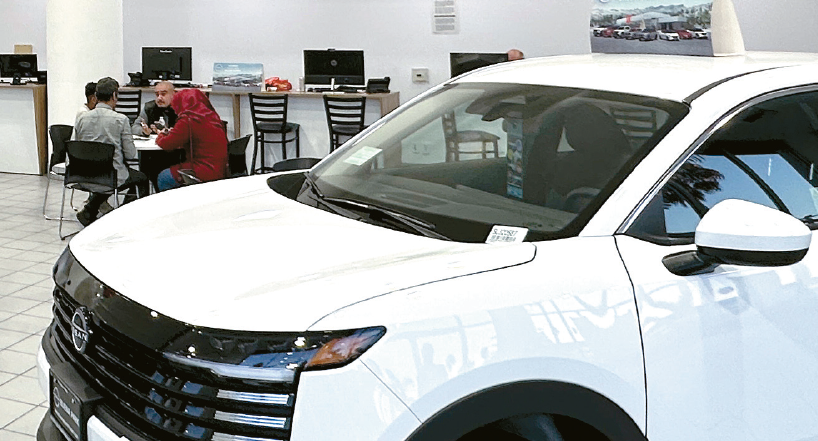Auto loan approval rates are declining across the board—even for borrowers with strong credit—due to tighter lending standards, rising delinquency rates, and growing economic uncertainty. As car prices and interest rates remain high, buyers are facing mounting challenges when trying to finance a new vehicle.

Lenders Reject More Borrowers Amid Tougher Credit Checks
According to Korean American professionals in the auto and lending industries, dealerships and financing institutions are tightening loan criteria, resulting in a surge of rejections.
A source in the Korean American credit industry noted, “Even Korean Americans with generally strong credit scores are struggling to get approved. Loan amounts are shrinking, and approval rates are falling overall.”
Jay Jang, Vice President at Eden Auto in Koreatown, Los Angeles, confirmed that financing approvals for popular brands such as Toyota and Lexus are becoming harder to obtain. “We’re seeing more cases where dealerships raise issues during the income verification process,” he said.
Experts attribute the trend to a broader economic downturn, which has made lenders more cautious as more customers fall behind on payments.
Major Institutions Like Ally, Capital One Tighten Lending Standards
Lenders such as Wells Fargo, Capital One, and other major auto finance companies have adopted stricter loan policies in recent years. According to a Wall Street Journal report, Ally Financial received a record 3.8 million loan applications in the first quarter—but its approval rate dropped compared to the previous quarter.
Capital One, despite increasing its overall lending volume, is primarily issuing loans to borrowers with top-tier credit. More than half of the company’s auto loans in the last quarter went to individuals with the highest credit scores.
Richard Fairbank, CEO of Capital One, acknowledged the conservative stance, stating, “We are approaching this very cautiously, considering the uncertain economy.”
More Buyers Choose 84-Month Loans—But the Costs Add Up
As financing becomes harder to secure, more buyers are choosing 84-month or longer loan terms to reduce their monthly payments.
Jim Farley, CEO of Ford, remarked during a recent earnings call, “Consumers are doing everything they can to afford new vehicles. The rise in 84-month financing is happening naturally within the industry’s averages.”
However, financial experts warn that extended loans significantly increase the total interest paid over time—potentially adding the cost of another used vehicle to the purchase.
According to Kelley Blue Book, the average new car price last year was $49,740. With a $5,000 down payment, a 7.2% interest rate, and good credit, an 84-month loan results in a monthly payment of approximately $683.
Over seven years, however, total interest payments add up to $12,420—enough to purchase a used car.
In contrast, a 36-month loan under the same terms would increase monthly payments to $1,393, but reduce total interest to $5,169, cutting the interest burden by more than half.
Experts caution consumers not to focus solely on monthly payments. “If buyers only consider monthly affordability, they could end up paying far more in the long run,” one expert said. “It’s crucial to factor in the total repayment amount, including interest, before making a purchase decision.”
BY HOONSIK WOO [woo.hoonsik@koreadaily.com]
![From Pulpit to Motorcade: How a Mega-Church Pastor Turned LAX Into His Personal Red Carpet Men in suits are directing traffic on the roadway in front of the Tom Bradley International Terminal at Los Angeles International Airport. Rev. Younghoon Lee is stepping out of a stopped vehicle. [Instagram capture from @joy.of.everything]](https://www.koreadailyus.com/wp-content/uploads/2026/02/0206-pastor-2-100x70.jpg)


